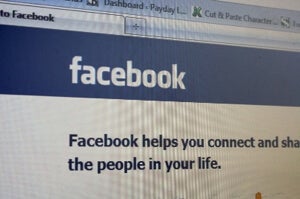A line from Max Ehrmann’s 1927 poem “Desiderata” reads:
If you compare yourself with others, you may become vain and bitter; For always there will be greater and lesser persons than yourself.
Social networking makes it easier than ever to compare yourself with others—but forget about vanity. It’s not uncommon to hear Facebookers complain many of their social contacts appear to be living vastly more interesting and fulfilling lives than they are.
So, has social networking created a billion bitter Facebookers? A team of University of Michigan researchers decided to move past the anecdotal and apply the scientific method to this bit of common wisdom.
Studying how Facebook affects people is a popular pastime. Researchers have penned some 412 papers since 2005. But the University of Michigan team found the results confused. Some studies noted Facebook use positively impacted well-being, others found a negative relation, and still others said the affect was nuanced and influenced by many variables.
 None of the studies looked at how Facebook affected well-being over time. The Michigan team decided to remedy the situation by using a method that gathers data from participants in everyday settings outside the lab using their smartphones, texts, and an online survey.
None of the studies looked at how Facebook affected well-being over time. The Michigan team decided to remedy the situation by using a method that gathers data from participants in everyday settings outside the lab using their smartphones, texts, and an online survey.
The team assembled a group of 82 college-aged adults. (A “core Facebook user demographic” according to the researchers.) For $20 and the chance to win an iPad, participants agreed to answer five survey questions texted to them five times a day over two weeks and a more broad survey at the beginning and end of the study.
After two weeks, the team tabulated the data and found some fairly unambiguous results. Participants who logged into Facebook more often tended to suffer a diminished sense of well-being (“how do you feel right now”) moment to moment and lower overall life satisfaction at the end of the period.
Knowing full well there may be other explanations and many variables are at work, the team attempted to control for various personal differences like number of Facebook friends, perception of Facebook network support, depression, loneliness, gender, self-esteem, time of study participation, motivation for using Facebook. None of these significantly affected the outcome.
Similarly, they looked at two alternative possible explanations. Perhaps, for example, it’s human interaction more generally that causes folks to feel worse. In fact, they found that direct contact tended to positively affect participants’ sense of well-being.
 Or maybe people use Facebook when they feel bad. That is, the arrow of causation points the other direction. This too was not borne out by the data. Participants’ prior emotional status before the trial had little bearing on the outcome—both positive and negative mindsets suffered declines in well-being and life satisfaction with greater Facebook use.
Or maybe people use Facebook when they feel bad. That is, the arrow of causation points the other direction. This too was not borne out by the data. Participants’ prior emotional status before the trial had little bearing on the outcome—both positive and negative mindsets suffered declines in well-being and life satisfaction with greater Facebook use.
So what accounts for the findings? The researchers note that other studies have shown declines in subjective well-being may be due to unhealthy comparisons between individuals and their peers. However, though the paper establishes a correlation, it stops short of explaining it.
Also, it should be noted the correlations were statistically significant but still somewhat weak. (As would be expected of a subject that is affected by so many variables.) Further, the studied population wasn’t particularly sizable or necessarily representative of the billion or so Facebook users the world over.
The researchers say they’d like to broaden their scope in the future to include not only a wider demographic but other social networks as well.
Humans have always glanced over the fence and found their own yard wanting. Sites like Facebook allow us to peer into other people’s personal lives with ever more ease. But they also allow those sharing with us to carefully manicure their lawns, no matter what else is going on inside the house.
Max Ehrmann’s advice to have care before you compare hails from fifty years before the first PC, but in today’s world of social networking, it may be more applicable than ever.
Image Credit: coliedog mac/Flickr, MoneyBlogNewz/Flickr, Bob Mical/Flickr




